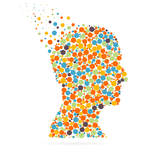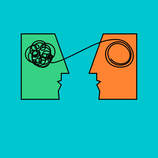Imagine...
|
a world where mental health illnesses will be assessed, monitored, advised on and even prevented in real-time. A world where objective data and digital therapeutics will be used to provide on-time support and 24/7 care to people suffering from mental health issues.
|
|
450 Million
people worldwide suffer from mental health disorders |
By 2030 depression
will be the leading cause of disease burden globally |
$467 billion
is what mental health disorders cost the US economy each year |
Global IoT in Healthcare market is expected to grow to $135.87 billion by 2025 at a CAGR of 21.2% between 2015 and 2025.
--Research and Markets
Augmented Mental Health
The New Paradigm in Mental Health Care
|
Mental health care providers and insurance companies are facing a crisis as the world grapples with rapidly rising rates of mental illness. Demand for mental health care is increasing. Care providers have not yet adequately responded to the burden of mental health disorders while poor quality of care continues to be a problem for many patients who receive treatment.
Mental health innovation is long overdue. While modern medicine relies almost solely on objective measurement, mental health has remained in the domain of subjective reporting. Its clinical environment hasn’t evolved with the intelligence, care, and diagnostics shown to the rest of medicine. Can we successfully monitor our mental health? Why hasn’t it been done before? Is it possible? Are there objective indicators to measure mental and emotional health? The answer is YES. |
Augmented Mental Health is a new era where objective data and digital therapeutics will help augment therapy and self-awareness, while real-time digital coaching & intervention platforms will help solve the therapy crisis and provide personalized care exactly when needed.
In the era of Augmented Mental Health, patients will receive personalized care and support around the clock, families will be notified when their loved ones are at risk and therapists will base their diagnosis on objective data. Similar to how diabetics use a glucose monitor or how people suffering from cardiovascular disease measure their blood pressure, Augmented Mental Health technologies will become the status quo for caring for mental health. Learn more here |
How Augmented Mental Health will transform healthcare
|
Employers and Employees
Employers will lower their health care costs and reduce staff turnover as employees play a more proactive role in managing their mental well-being leading to higher productivity and employee satisfaction.
|
|
Insurance payers
Insurance providers will be able to offer better plans and increased access to mental health services resulting in a spike in customer satisfaction. Payers will assume less risk as insurance claims for mental health will be reduced.
|
Pharma
Objective mental health data will be routinely used in psychiatric drug assessments and clinical trials to measure efficacy and pave the way for the discovery of novel drug treatments for mental illness.
|







